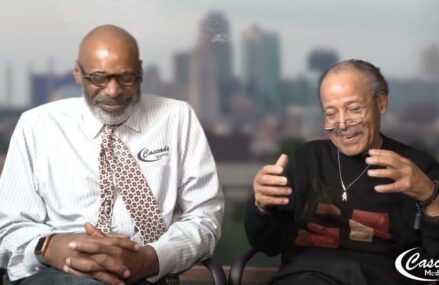By CANDICE CHOI
In this Friday, April 12, 2013, photo, Seattle Mariners starting pitcher Hisashi Iwakuma warms up next to a Pepsi advertisement before a baseball game against the Texas Rangers, in Seattle. PepsiCo Inc. reports quarterly financial results before the market opens on Thursday, April 18, 2013. (AP Photo/Ted S. Warren)
NEW YORK (AP) — PepsiCo is selling more its snacks and drinks around the world, even as the maker of Frito-Lay, Tropicana and Quaker Oats is still trying to figure out how to sell more soda in the United States.
The company on Thursday reported a first-quarter profit that beat Wall Street expectations as it saw strong growth in emerging markets and benefited from a lower tax rate.
PepsiCo’s North American snacks unit also saw gains, with premium offerings such as Stacy’s pita chips and Sabra hummus performing particularly well. The popularity of its Doritos and Lay’s also helped pick off market share from competitors. As such, PepsiCo said it’s confident it can raise prices in the year ahead without scaring off customers.
For its beverage unit in the Americas, however, revenue was flat as price hikes offset a drop in volume. Soft drink volume declined in the mid-single digits.
“The cola category continues to be a challenge,” CEO Indra Nooyi noted in a conference call with investors.
Over the past year, PepsiCo has significantly stepped up marketing for its namesake drink, including an endorsement deal with the pop star Beyonce. But the company is struggling to win back market share from Coca-Cola Co. at a time when Americans are continuing to cut back on soda in favor of water, sports drinks and bottled teas.
PepsiCo, based in Purchase, N.Y., offers a variety of drinks in all those categories, including Aquafina, Gatorade and Lipton. But Nooyi noted that the company has to be careful about investing more heavily in one brand at the expense of another. Soda, for example, is generally more profitable than bottled water and still makes up a majority of its beverage sales.
“Any growth we achieve in one area takes from another area where we compete,” Nooyi said, noting that the company is still working on the “reinvention” of its carbonated soft drinks.
The remark was in part a reference to the company’s work on a natural sweetener mix for sodas that PepsiCo hopes will let it reduce sugar content without sacrificing taste. The company has declined to provide specifics, but Nooyi has said the innovation could “potentially alter the trajectory of our cola business in a meaningful way.”
With growth sluggish in the U.S., PepsiCo and rival Coca-Cola Co. are trying to improve profit margins by reducing costs wherever they can. Earlier this week, for example, Coca-Cola announced preliminary deals to start refranchising its U.S. business. By handing over distribution responsibilities to its independent bottlers, the Atlanta company would lower its own expenses in favor of franchising fees.
PepsiCo also is reviewing a restructuring of its North American beverage business but the possibilities may be more radical, with investors speculating that a spinoff is among the options being considered. In a call with reporters, Chief Financial Officer Hugh Johnston declined to rule out that possibility and emphasized that the company wouldn’t provide an update on the matter until early next year.
In addition, the company noted Thursday that it expects to continue improving profit margins with about $900 million in cost savings for the year.
For the quarter, the company said global snacks volume rose 4 percent and beverage volume rose 3 percent.
Despite its better-than-expected results, PepsiCo stood by its forecast that core profit would grow 7 percent for the full year, following a year in which it slashed costs but spent more on marketing its biggest brands.
PepsiCo Inc. earned $1.08 billion, or 69 cents per share, for the three months ended March 23. That’s down from $1.13 billion, or 71 cents per share, a year earlier.
Excluding the impact of Venezuela’s currency devaluation and other items, it earned 77 cents per share. Analysts expected 70 cents, according to FactSet.
Revenue rose 1 percent to $12.58 billion, beating analysts’ prediction of $12.54 billion.
When adjusting for the impact of refranchising its business in China and foreign currency exchange rates, the company said revenue rose 4.4 percent.
A lower core effective tax rate also boosted results. But the company said it expects the rate to climb for the rest of the year.
Shares were up $4.01, or 5 percent, at $82.86.
____
AP Business Writer Michelle Chapman contributed to this report.



